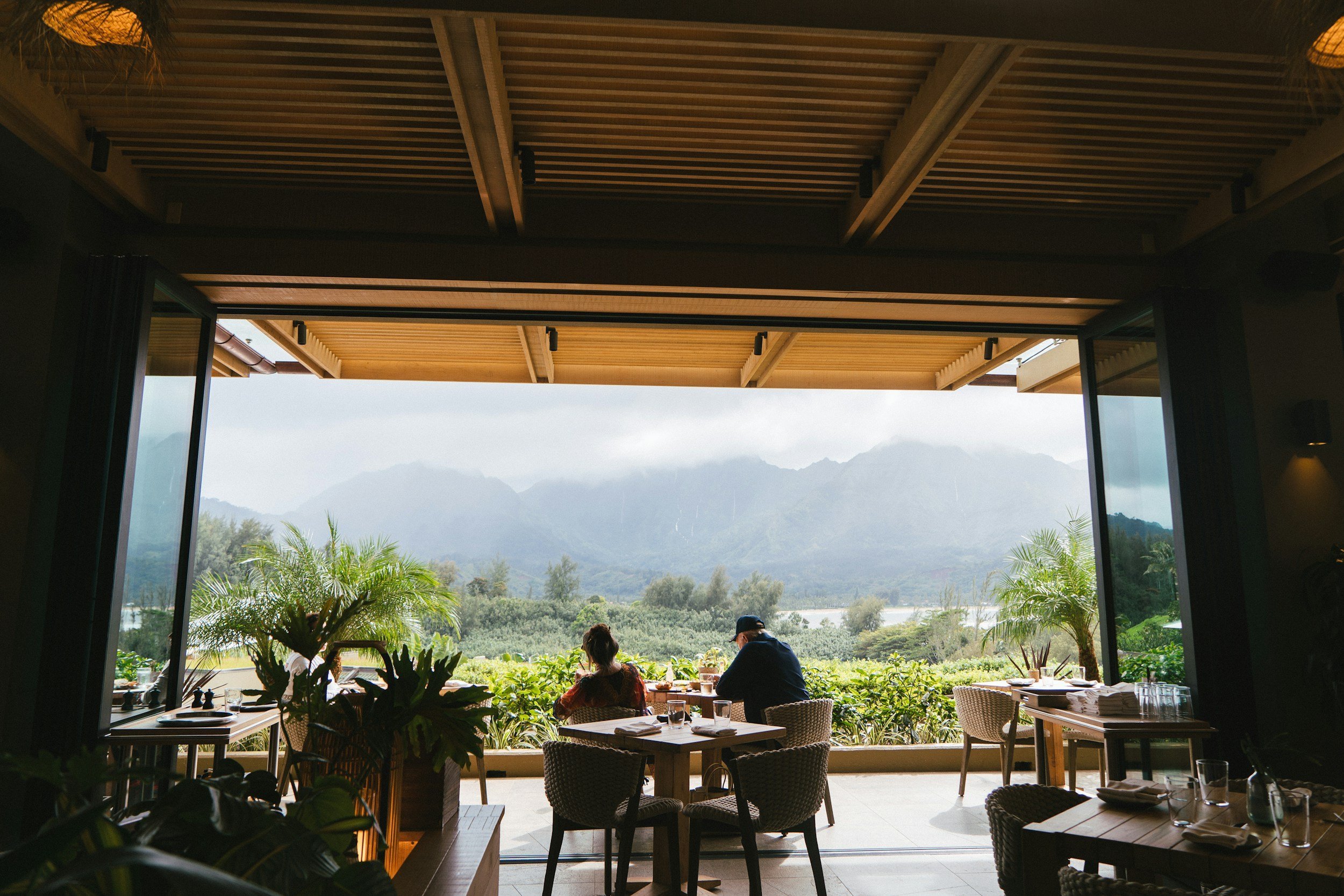2025 Travel Trends: Navigating the Future of Hospitality Marketing
As we step into 2025, the travel and hospitality industry is experiencing transformative shifts. Understanding these hospitality marketing trends is...
4 min read
The Travel Foundry Dec 3, 2024 9:30:00 AM

The travel and hospitality landscape is undergoing a seismic shift. Millennials (born 1981–1996) and Gen Z (born 1997–2012) have become dominant forces, with their behaviors, values, and expectations spurring innovation across the travel and hospitality sectors. Travel and hospitality brands that fail to recognize the preferences of these generations risk losing touch with a highly valuable and influential consumer base.
In this post, we'll dive deep into the key behaviors and expectations of Millennials and Gen Z, and offer strategies to build lasting loyalty by leveraging authenticity, technology, sustainability, and personalization—backed by the latest data and research for 2025.
Millennials and Gen Z, with their combined purchasing power, now represent the most influential consumer demographic in travel. According to Statista, Millennials accounted for 48% of U.S. travelers in 2024 and are projected to continue leading the pack with a growing share of the travel market, expected to make up nearly 50% of global travel spending by 2025. Gen Z, though younger, is quickly emerging as a force in travel. A recent Deloitte study projected that Gen Z travelers would make up nearly 25% of global travel spend by 2025.
Both generations are tech-savvy, highly connected, and value experiences over material goods, with a strong preference for authentic, meaningful travel experiences. Understanding their needs and delivering on those expectations is key to building strong, long-term relationships.

For Millennials and Gen Z, authenticity is paramount. Both generations seek more than a mere vacation—they crave genuine experiences that provide cultural immersion and foster connections with local communities. According to Booking.com’s 2023 research, 77% of Gen Z and 72% of Millennials prefer brands that reflect their values, including sustainability, inclusivity, and social impact.
77% of Gen Z and 72% of Millennials prefer brands that reflect their values, including sustainability, inclusivity, and social impact
These travelers are more likely to gravitate towards experiences that are culturally enriching, such as local food tours, heritage experiences, or sustainable tourism options. Brands that market authentic, one-of-a-kind experiences and avoid over-commercialized, generic offerings will stand out in the eyes of younger travelers.
-1.png?width=349&height=518&name=2025-01-21%20at%2012.29.02%20PM%20(1)-1.png)
Both Millennials and Gen Z are digital-first generations. They expect seamless, tech-driven travel experiences that make it easy to book, manage, and enjoy their trips. According to Travel + Leisure, 82% of Millennials and 75% of Gen Z utilize their smartphones for trip planning.
Brands should focus on integrating AI-driven personalization, offering tailored recommendations based on past travel data or preferences. For example, Expedia’s use of personalized travel suggestions has led to increased engagement, particularly among younger consumers who demand a personalized experience.
Additionally, mobile-first platforms that enable mobile check-ins, instant communication with customer support, and personalized offers will keep younger consumers loyal to your brand.
For Millennials and Gen Z, sustainability has transitioned from a desirable feature to an essential one. They expect travel brands to demonstrate clear environmental responsibility, from eco-friendly accommodations to transparent carbon offsetting programs. According to a recent study by Skyscanner, 73% of Gen Z travelers are willing to pay more for sustainable travel options, while 72% of Millennials also prefer brands with strong environmental policies.
73% of Gen Z travelers are willing to pay more for sustainable travel options
This generation also values ethical travel—ensuring that their travel dollars support local communities and inclusive experiences. Highlighting these values in your branding and ensuring that your brand practices what it preaches can enhance loyalty.
Social media continues to be a driving force in travel decisions for both generations. According to National Geographic, 60% of Gen Z and 57% of Millennials look to platforms like Instagram, TikTok, and YouTube for travel inspiration. Social media isn't just a source of information for these groups—it’s also where they share their experiences.
For travel brands, this means two things:
-1.jpeg?width=800&height=591&name=charlesdeluvio-FdDkfYFHqe4-unsplash%20(1)-1.jpeg)
To create lasting loyalty, brands need to offer experiences that are not only unique but tailored. Millennial and Gen Z travelers appreciate personalization. Utilize data analytics and AI to provide customized travel itineraries, exclusive offers, and tailored recommendations informed by past behaviors. Airbnb has mastered this by offering personalized trip suggestions and the ability for users to book one-of-a-kind experiences with local hosts.
Sustainability is not optional. Integrating sustainability into your core offerings—whether it’s promoting eco-friendly accommodations, offering carbon offsets, or supporting local businesses—is crucial. Hyatt, for instance, has introduced sustainability initiatives like energy-efficient buildings and waste reduction programs to meet the rising demand for eco-conscious travel options among younger travelers.
The traditional frequent flyer program doesn’t appeal to Millennials and Gen Z, who travel less frequently with a single airline or hotel chain. Instead, brands should create flexible loyalty programs that offer rewards for a range of activities.These programs could offer exclusive access to local experiences, instant upgrades, or discounts on sustainable travel products.
Build a loyal community by engaging with travelers on their platforms of choice. Instead of traditional advertising, create value-driven content on platforms like Instagram and TikTok that educates, entertains, and invites interaction. Virgin Atlantic, for example, uses its Instagram feed to share stories of sustainability, customer experiences, and behind-the-scenes footage of their operations.
Partner with influencers who genuinely reflect the values of your brand. Millennials and Gen Z are adept at spotting inauthenticity, so your influencer marketing campaigns need to be built around real partnerships with those who share your brand ethos.
-1.jpg?width=341&height=510&name=karsten-winegeart-762YvPA53BQ-unsplash%20(1)-1.jpg) Millennials and Gen Z are not just reshaping the travel landscape—they are driving it forward. Their demands for authenticity, personalization, sustainability, and seamless digital interactions have established new industry benchmarks. To build lasting relationships with these generations, travel brands must prioritize authentic engagement, value-driven experiences, and flexible loyalty rewards that cater to their evolving preferences.
Millennials and Gen Z are not just reshaping the travel landscape—they are driving it forward. Their demands for authenticity, personalization, sustainability, and seamless digital interactions have established new industry benchmarks. To build lasting relationships with these generations, travel brands must prioritize authentic engagement, value-driven experiences, and flexible loyalty rewards that cater to their evolving preferences.
As we approach 2025, the travel brands that succeed will be those that adapt quickly, listen to these generations, and lead with purpose. At The Travel Foundry, we don’t just adapt to these shifts—we help you lead the way. With a deep understanding of the travel and hospitality space, we design strategies that not only meet today’s demands but also anticipate tomorrow’s needs. If you’re ready to elevate your brand and stay ahead of the curve, drop us a line or reach out to us today at hello@thetravelfoundry.com.

As we step into 2025, the travel and hospitality industry is experiencing transformative shifts. Understanding these hospitality marketing trends is...

As we navigate through 2025, the travel and hospitality industry is undergoing a technological renaissance. Innovations in travel and hospitality...